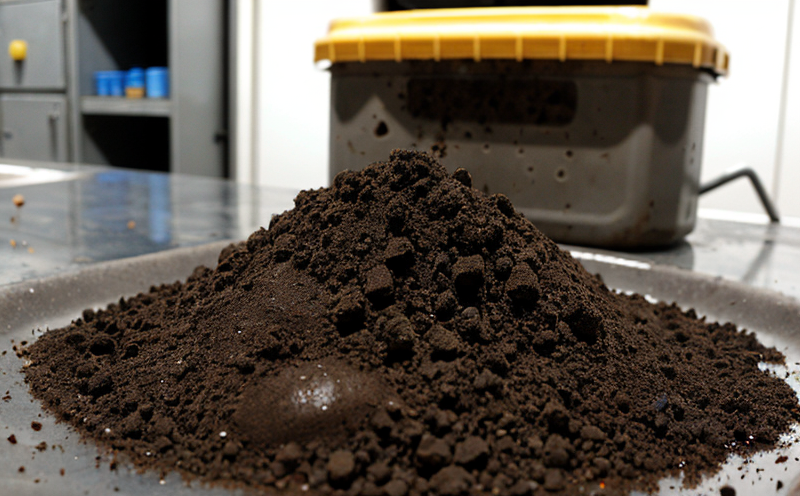Biofuel Residue Profiling
The analysis of biofuels is crucial in ensuring their quality and compliance with international standards. Biofuel residue profiling involves comprehensive testing to identify impurities, additives, and contaminants that can affect the performance, efficiency, and safety of biofuels. This service helps stakeholders understand the composition of biofuels by breaking down complex mixtures into individual components.
Biofuels, such as biodiesel and ethanol, are increasingly used in transportation to reduce greenhouse gas emissions. However, impurities can lead to engine damage or reduced fuel efficiency. By profiling residues, we ensure that these fuels meet stringent quality requirements and regulatory standards set by organizations like the International Organization for Standardization (ISO), ASTM International, and European Committee for Standardization (CEN).
Our laboratory uses advanced analytical techniques, including chromatography, spectroscopy, and mass spectrometry, to provide detailed profiles of biofuel residues. This includes assessing trace elements, additives, and impurities that could compromise the fuel’s performance. The service is particularly valuable for quality managers, compliance officers, R&D engineers, and procurement teams who need accurate data to make informed decisions.
The process begins with sample preparation, where we ensure that the biofuel is representative of the batch being tested. This involves dilution if necessary, filtration, and other preparatory steps to avoid contamination or interference in subsequent analyses. Once prepared, the samples undergo a series of tests designed to identify all residues present.
Key components of our testing include:
- Detailed chromatographic analysis to separate and quantify individual compounds
- Spectroscopic techniques such as infrared and nuclear magnetic resonance for structural elucidation
- Mass spectrometry to determine the molecular weight, functional groups, and other physicochemical properties of residues
The results provide a comprehensive picture of biofuel composition, highlighting any potential issues that could impact fuel performance. This information is invaluable for quality assurance programs, regulatory compliance, and R&D initiatives aimed at improving fuel efficiency and reducing environmental impact.
Accurate residue profiling also supports the development of new formulations or blending ratios for biofuels. By understanding the exact composition of residues, stakeholders can optimize blends to meet specific performance targets while minimizing adverse effects on engines and emissions.
Why It Matters
Biofuel residue profiling is essential in ensuring that fuels meet quality standards and regulatory requirements. Non-compliance with these standards can lead to operational disruptions, increased maintenance costs, and potential safety hazards. By providing detailed insights into biofuel residues, our service helps stakeholders maintain consistent fuel quality across production batches.
Understanding the composition of biofuels is particularly important for industries that rely heavily on renewable energy sources. For instance, in the aviation sector, even small impurities can lead to costly engine malfunctions or unexpected maintenance needs. In automotive applications, residues could affect vehicle performance and fuel efficiency. Compliance with international standards not only ensures operational reliability but also supports environmental sustainability goals.
Our laboratory’s expertise in residue profiling allows us to offer a robust service that addresses the specific needs of different sectors. From refining processes to quality assurance programs, we provide actionable insights that help stakeholders stay ahead of regulatory changes and market trends. This proactive approach is critical for maintaining competitive advantage in a rapidly evolving energy landscape.
International Acceptance and Recognition
Biofuel residue profiling is recognized internationally as a vital tool for ensuring fuel quality and compliance with global standards. Many countries have implemented stringent regulations to promote the use of cleaner, more sustainable biofuels. Organizations such as ISO, ASTM International, CEN, and IEC provide guidelines that specify acceptable levels of impurities and additives in biofuels.
Our laboratory adheres strictly to these international standards when conducting residue profiling. This ensures that our clients receive results that are not only accurate but also globally accepted and comparable. By aligning with these recognized standards, we help stakeholders comply with local and international regulations, thereby reducing the risk of non-compliance penalties.
Recognition from reputable bodies like ISO and ASTM adds credibility to our laboratory’s findings. This is particularly important for companies involved in global supply chains where consistency across different markets is crucial. Our service not only meets but exceeds these standards, providing clients with peace of mind regarding fuel quality and regulatory compliance.





